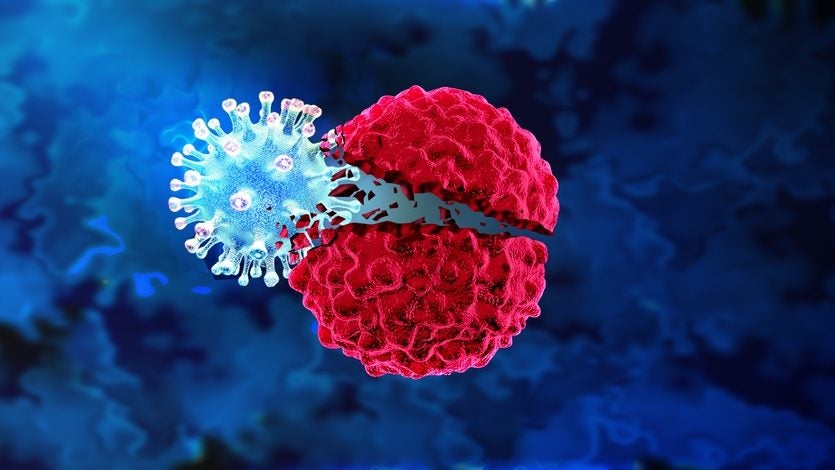

Alloplex Biotherapeutics’ autologous SUPLEXA cell immunotherapy for cancer has demonstrated promise in a first-in-human study.
In the Phase I trial, conducted at three sites in Australia, 60% of renal cell carcinoma (RCC) patients achieved stable disease (SD).

Discover B2B Marketing That Performs
Combine business intelligence and editorial excellence to reach engaged professionals across 36 leading media platforms.
The Boston-based company’s open-label, non-comparative, basket-design Phase I SUPLEXA trial (NCT05237206) evaluated the safety, tolerability, and preliminary clinical efficacy of repeated intravenous (IV) infusions of SUPLEXA cell monotherapy in 35 patients with measurable metastatic solid tumours and haematologic malignancies.
Alloplex said the most striking results of the study, which enrolled patients with various cancer types who had exhausted all standard treatment options, were observed in patients with RCC or advanced colorectal cancer (CRC).
Out of ten RCC patients, one achieved partial response (PR), six achieved stable disease (SD) and three had progressive disease (PD).
Of the study’s three CRC patients, one achieved a complete response (CR), one achieved PR, and the other achieved SD.

US Tariffs are shifting - will you react or anticipate?
Don’t let policy changes catch you off guard. Stay proactive with real-time data and expert analysis.
By GlobalDataThe trial’s full results are to be presented at the upcoming Society for Immunotherapy of Cancer (SITC) meeting, which will take place from 7 to 9 November in Houston, Texas, US.
Alloplex’s SUPLEXA cells are created using a patient’s own cells and the ENLIST immune cell training platform.
Alloplex founder and CEO Dr Frank Borriello said: “Cancer often gains the upper hand by suppressing the immune system. Our approach flips the script: we isolate immune cells from this suppressive environment, reactivate their inherent cancer-fighting abilities in a laboratory and return them back to the patient.”
Speaking about the Phase I trial, Borriello added: “Many of these patients sustained a strong clinical response for up to two years.”
Alloplex says it has received encouragement from the US Food and Drug Administration (FDA) to proceed with an Investigational New Drug (IND) submission, with the company planning to initiate Phase II clinical trials of SUPLEXA in early 2025.
In Phase II, the company plans to combine SUPLEXA with immune checkpoint inhibitors (ICIs) in patients with a specific type of colorectal cancer to determine whether SUPLEXA can enhance outcomes in patients treated with ICI-based standard of care (SoC).
Elsewhere in precision medicine, the US National Institutes of Health (NIH) recently launched a trial to match patients with myeloid leukaemia (AML) or myelodysplastic syndromes (MDS) to treatments based on their cancer’s genetic profile.
Cell & Gene therapy coverage on Clinical Trials Arena is supported by Cytiva.
Editorial content is independently produced and follows the highest standards of journalistic integrity. Topic sponsors are not involved in the creation of editorial content.





